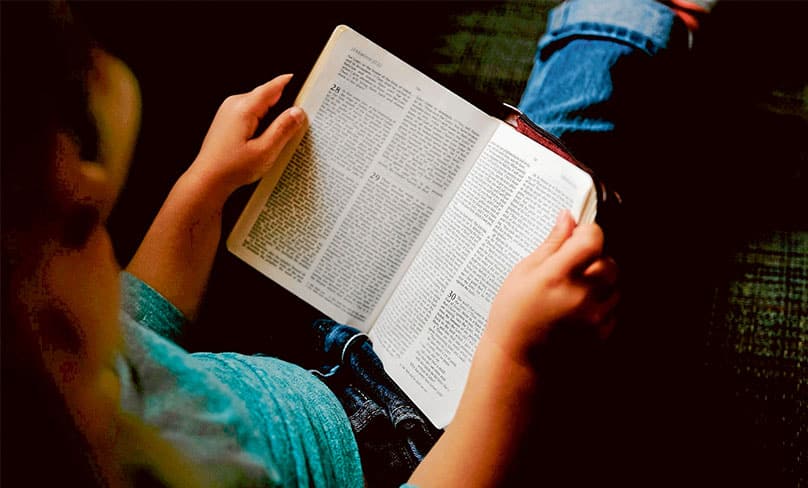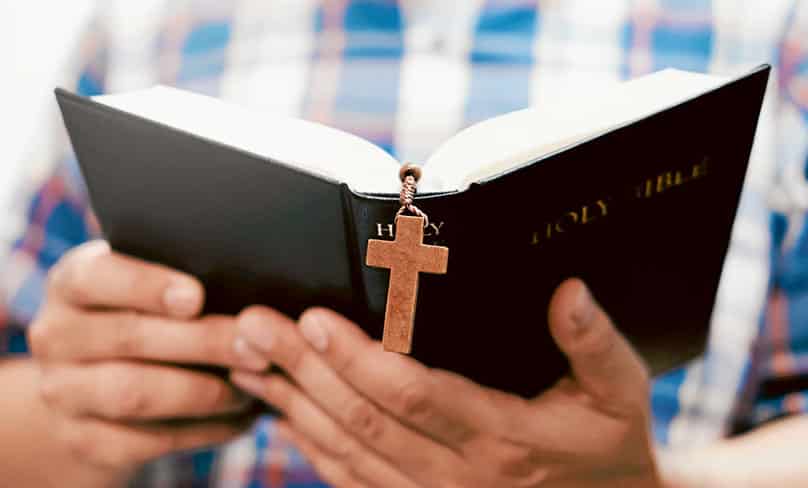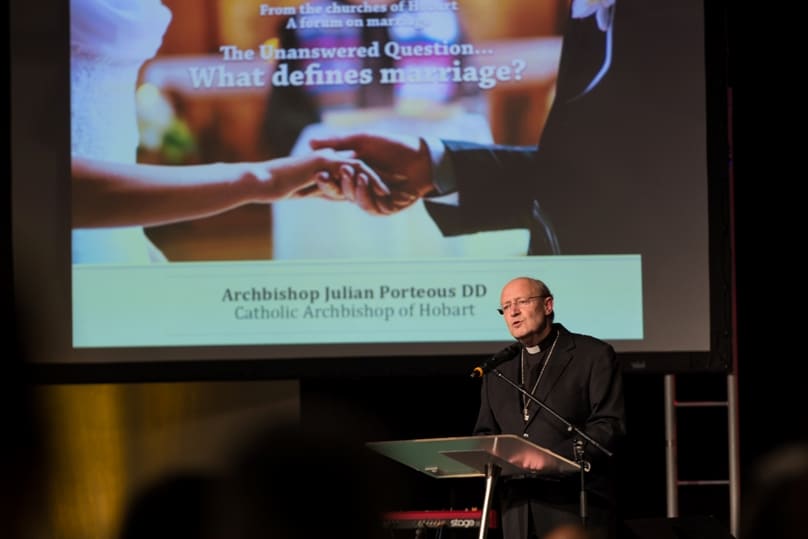
Earlier this week, a dear friend suggested that I might in future be the patron saint of having to listen to the unbearable. While I don’t think anyone is going to have to assign a patronage to me at any point, it is possible that ‘listening to the unbearable’ is part of my path to holiness.
The ‘unbearable’ that marked this past week was the public hearings for the latest Senate inquiry into religious freedom, specifically about whether to remove religious freedom protections for faith-based schools on the grounds that such freedoms discriminate against LGBTI students.
A number of the senators did not even seek to maintain the veneer of impartiality, and instead opted to debate witnesses with whom they disagreed. At various points throughout the two-day hearing, the Committee Chair had to remind senators that they were not there to give their own opinion, but to listen to the testimony of the witnesses before them.
The Chair was right. The senators should have been listening to the testimony of the witnesses. And so should have we, because many of the activist groups that appeared before the inquiry gave us the latest insight of their ‘vision’ for faith-based schools.

This inquiry was meant to focus on students, but its scope was widened with the assistance of witnesses and senators.
There is very little, if any, evidence of any type of discrimination – just or unjust – occurring in faith-based schools against students on the basis of sexual orientation or gender identity, but this did not prevent it being spoken about as if it was an endemic problem. The reason for making it seem like an urgent and widespread concern was obvious: it provided a pathway to argue for radical changes to how faith-based schools are run in order to protect vulnerable children.
Let me be clear: all children should be protected and, in a faith whose social teaching insists that we must have a preferential option for the poor, we need to take special care of children with vulnerabilities.
See related article: Paul Green MLC: Keeping SRE is vitally important for kids
Part of protecting children, however, is to ensure that their real and legitimate struggles are not exploited by activists who are pursuing an anti-faith (and specifically anti-Catholic) agenda. Unfortunately, however, this is what seemed to occur at these hearings.
I give just a few examples.

During the student-focused inquiry, a number of people (including a senator) tried to switch the attention to the employment of LGBTI staff. They argued that by declining to hire transgender teachers, or not allowing teachers to be openly gay with staff and students, religious schools were ‘discriminating’ against students who themselves identified as gay or transgender.
The point of this argument is to use the students to usher in a much larger agenda: the removal of the right of religious schools to employ staff who live consistently with the faith of that school.
Another witness proposed that there needed to be a much more “honest and open discussion about sex and sexuality” in faith-based schools. Given that the inquiry was in relation to sexual orientation and gender identity, the subtext is the broadening of sex education, ie religious schools should teach the Safe Schools program.
But the most sinister proposal in the inquiry was not about staff or sex ed, but about whether and how the Catholic faith itself should be presented.
Robin Banks, who was the Tasmanian Anti-Discrimination Commissioner at the time the anti-discrimination case was brought against Archbishop Julian Porteous, gave testimony about that complaint.
The complaint, Ms Banks explained, “didn’t in any way challenge the right of the church to express doctrine in the ways that it did in much of the booklet. It simply challenged it when it seemed to be saying, ‘Well, this isn’t just doctrinal: this is fact.’”
See related article: SRE review finds high levels of parental, school satisfaction
In other words, Catholic schools should be allowed to teach doctrine, but they shouldn’t teach that it’s true. “This is what we believe,” we can say, “but there is absolutely no factual basis for us to believe it.”
Matilda Alexander, President of LGBTI Legal Service, testified alongside Ms Banks and had a helpful suggestion about how schools could teach about homosexuality without falling foul of reasonableness tests contained in anti-discrimination laws: “This is in the Bible, but the contemporary context is this or that; certainly we advocate for love of everyone and compassion.”
Under Ms Alexander’s proposal, we would just recontextualise the whole of Sacred Scripture to fit with modern ‘values.’
While the ‘doctrine is not to be confused with truth’ testimony of Ms Banks and the ‘recontextualisation’ proposal of Ms Alexander might be music to the ears of those who champion the use of the Enhancing Catholic School Identity Project (ECSIP) program in Catholic schools, I beg to differ. Catholic schools don’t teach the Catholic faith as something that is distinct from fact or belonging only to the time in which the events recorded in Scripture occurred.
The Catholic faith is true and timeless; that’s why we teach it, that’s why we believe it. And if we don’t believe it and we don’t teach it, then we should just pack up and go home.
Which is what many of the activists appearing before the inquiry want to happen.
We must not give in. Now, more than ever, we have to double down on our commitment to authentic Catholic education, and reject any attempted overreach by the State that would see it dictate what elements of the Catholic faith we are allowed to teach, and in what manner.
